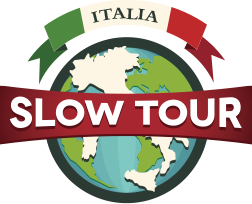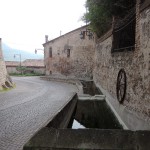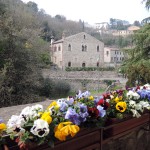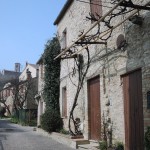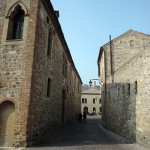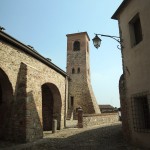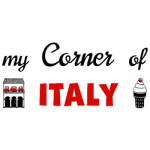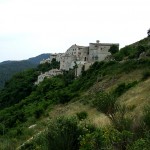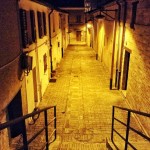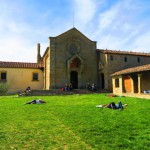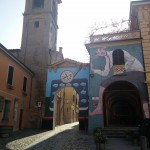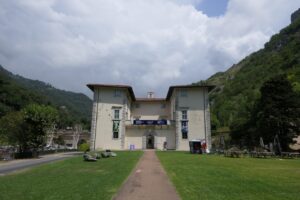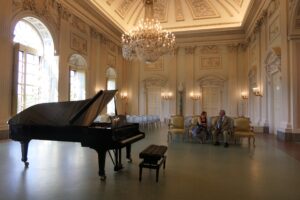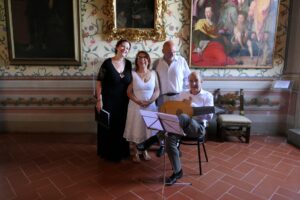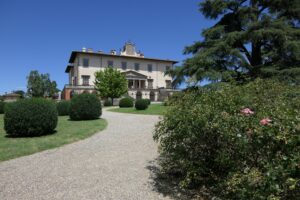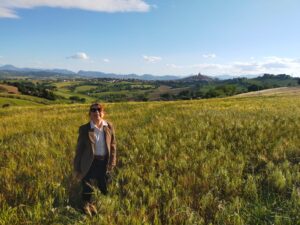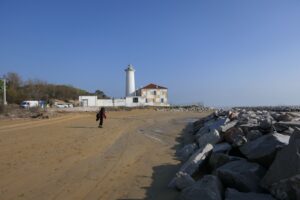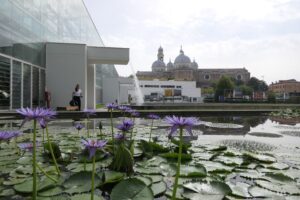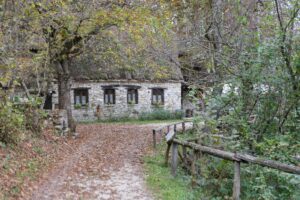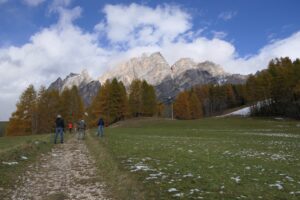Guess how many inhabitants it has
Arquà Petrarca
The poet’s haven on the Euganean Hills
by Laura Teso (My Corner of Italy blog)
If you want to enjoy a romantic slow-paced getaway during your holiday in Veneto, Arquà Petrarca is the perfect place: a tiny medieval village lying on the Euganean Hills, made by stone houses, a couple of narrow streets clambering up and down the hill and many picturesque corners. It is a paradise for cyclists, gourmets and poetry lovers.
Arquà Petrarca is included in I Borghi più belli d’Italia (the most beautiful villages in Italy), an association that preserves charming little burgs throughout Italy. The name derives from the poet and father of Humanism Petrarca who retired here to enjoy the idyllic landscape and the salubrious climate.
- Corners of Arquà
- Arquà Petrarca’s view
- Corners of Arquà
Coming from the big parking you’ll find the small piazza Roma, the heart of the low Arquà Petrarca. The square is overlooked by the St. Mary of the Assumption church (in the apsis the most precious canvas, The Assumption by Palma il Giovane), the Tomb of Petrarca, the splendid Venetian Gothic Contarini Palace and the Strozzi Palace, once used as olives mill. Proceeding along the main road you’ll spot some medieval houses together with noble palaces that were the former aristocracy’s holiday resorts.
At the end of the ascent there are the Oratory of the Holy Trinity with the adjacent Vicars Lodge, the column with the lion of St. Mark (symbol of the rule of Venice) and the little Town Hall. The street on its right leads to the House of Petrarca where you can learn more about his life admiring his room and the frescoes inspired by his major poem, Il Canzoniere (The Songbook). Once back in piazza Roma, take via Fontana to reach Petrarch’s fountain. In its frontal arch there is a Latin inscription, addressed to foreign visitors, reminding them to respect the divine powers of the water that allowed Petrarch to write his verses.
- Contarini Palace and Strozzi Palace
- Oratory of the Holy Trinity
- House of Petrarca
Thanks to Petrarca, Arquà has been a place of literary pilgrimage for centuries. Among the illustrious pilgrims: the author of Cavalleria Rusticana Mascagni, the inventor of the radio Marconi and the poets Lord Byron, Carducci, Foscolo. Also D’Annunzio has set here some scenes of his book The Flame of Life (Il Fuoco).
This area is renowned for the production of extra virgin olive oil, wine and jujube fruits. Along the main street you will find restaurants, taverns and cafés. If you really want to eat like a local try the bigoli al ragù d’anatra (a kind of fresh pasta seasoned with duck sauce). If you prefer something quick and light the perfect choice is a cold cuts dish. At the end of the meal, sip some brodo di giuggiole (jujubes broth), a sweet spirit only made in Arquà. In the village shops you can buy this and other specialities (jams, wines, olive oil, honey, grappa).
There’s absolutely no need to rush here. Arquà can be visited in a couple of hours, more if you stop for lunch or if you wish to hike on the surrounding hills. If you’re lucky enough to visit it during the low season you will discover a pleasant place, where time seems to have stopped. A place “far from the madding crowd”, rich of perfumes and flavours, rich and sweet like the verse of a sonnet.
Laura Teso, My corner of Italy blog
Main pic by Flickr User David Nicholls
